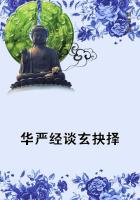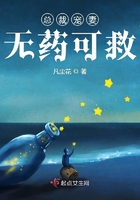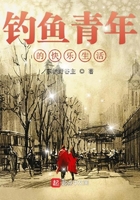In exhibiting Caesar as a much more various person than the historian of the Gallic wars, I hope I have not succumbed unconsciously to the dramatic illusion to which all great men owe part of their reputation and some the whole of it. I admit that reputations gained in war are specially questionable. Able civilians taking up the profession of arms, like Caesar and Cromwell, in middle age, have snatched all its laurels from opponent commanders bred to it, apparently because capable persons engaged in military pursuits are so scarce that the existence of two of them at the same time in the same hemisphere is extremely rare. The capacity of any conqueror is therefore more likely than not to be an illusion produced by the incapacity of his adversary. At all events, Caesar might have won his battles without being wiser than Charles XII or Nelson or Joan of Arc, who were, like most modern "self-made" millionaires, half-witted geniuses, enjoying the worship accorded by all races to certain forms of insanity. But Caesar's victories were only advertisements for an eminence that would never have become popular without them. Caesar is greater off the battle field than on it. Nelson off his quarterdeck was so quaintly out of the question that when his head was injured at the battle of the Nile, and his conduct became for some years openly scandalous, the difference was not important enough to be noticed. It may, however, be said that peace hath her illusory reputations no less than war. And it is certainly true that in civil life mere capacity for work--the power of killing a dozen secretaries under you, so to speak, as a life-or-death courier kills horses--enables men with common ideas and superstitions to distance all competitors in the strife of political ambition. It was this power of work that astonished Cicero as the most prodigious of Caesar's gifts, as it astonished later observers in Napoleon before it wore him out. How if Caesar were nothing but a Nelson and a Gladstone combined! A prodigy of vitality without any special quality of mind! Nay, with ideas that were worn out before he was born, as Nelson's and Gladstone's were! I have considered that possibility too, and rejected it. I cannot cite all the stories about Caesar which seem to me to show that he was genuinely original; but let me at least point out that I have been careful to attribute nothing but originality to him.
Originality gives a man an air of frankness, generosity, and magnanimity by enabling him to estimate the value of truth, money, or success in any particular instance quite independently of convention and moral generalization. He therefore will not, in the ordinary Treasury bench fashion, tell a lie which everybody knows to be a lie (and consequently expects him as a matter of good taste to tell). His lies are not found out: they pass for candors. He understands the paradox of money, and gives it away when he can get most for it: in other words, when its value is least, which is just when a common man tries hardest to get it.
He knows that the real moment of success is not the moment apparent to the crowd. Hence, in order to produce an impression of complete disinterestedness and magnanimity, he has only to act with entire selfishness; and this is perhaps the only sense in which a man can be said to be naturally great. It is in this sense that I have represented Caesar as great. Having virtue, he has no need of goodness. He is neither forgiving, frank, nor generous, because a man who is too great to resent has nothing to forgive; a man who says things that other people are afraid to say need be no more frank than Bismarck was; and there is no generosity in giving things you do not want to people of whom you intend to make use. This distinction between virtue and goodness is not understood in England: hence the poverty of our drama in heroes. Our stage attempts at them are mere goody-goodies.
Goodness, in its popular British sense of self-denial, implies that man is vicious by nature, and that supreme goodness is supreme martyrdom. Not sharing that pious opinion, I have not given countenance to it in any of my plays. In this I follow the precedent of the ancient myths, which represent the hero as vanquishing his enemies, not in fair fight, but with enchanted sword, superequine horse and magical invulnerability, the possession of which, from the vulgar moralistic point of view, robs his exploits of any merit whatever.
As to Caesar's sense of humor, there is no more reason to assume that he lacked it than to assume that he was deaf or blind. It is said that on the occasion of his assassination by a conspiracy of moralists (it is always your moralist who makes assassination a duty, on the scaffold or off it), he defended himself until the good Brutes struck him, when he exclaimed "What! you too, Brutes!" and disdained further fight. If this be true, he must have been an incorrigible comedian. But even if we waive this story, or accept the traditional sentimental interpretation of it, there is still abundant evidence of his lightheartedness and adventurousness. Indeed it is clear from his whole history that what has been called his ambition was an instinct for exploration. He had much more of Columbus and Franklin in him than of Henry V.
However, nobody need deny Caesar a share, at least, of the qualities I have attributed to him. All men, much more Julius Caesars, possess all qualities in some degree. The really interesting question is whether I am right in assuming that the way to produce an impression of greatness is by exhibiting a man, not as mortifying his nature by doing his duty, in the manner which our system of putting little men into great positions (not having enough great men in our influential families to go round)forces us to inculcate, but by simply doing what he naturally wants to do. For this raises the question whether our world has not been wrong in its moral theory for the last 2,500 years or so. It must be a constant puzzle to many of us that the Christian era, so excellent in its intentions, should have been practically such a very discreditable episode in the history of the race. Idoubt if this is altogether due to the vulgar and sanguinary sensationalism of our religious legends, with their substitution of gross physical torments and public executions for the passion of humanity. Islam, substituting voluptuousness for torment (a merely superficial difference, it is true) has done no better. It may have been the failure of Christianity to emancipate itself from expiatory theories of moral responsibility, guilt, innocence, reward, punishment, and the rest of it, that baffled its intention of changing the world. But these are bound up in all philosophies of creation as opposed to cosmi**. They may therefore be regarded as the price we pay for popular religion.
End















